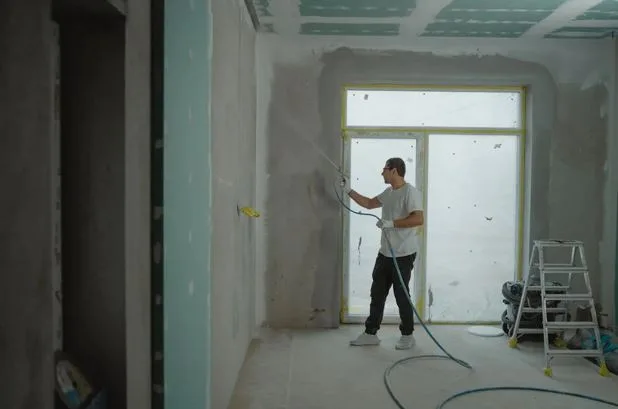Common Home Maintenance Tasks That Shouldn’t Be Skipped
Have you ever put off a small household task, only to realize later it caused a bigger and more expensive problem? Many homeowners can relate to that. It’s easy to ignore small maintenance duties when life gets busy. But over time, ignoring these responsibilities can lead to more stress and higher repair costs. Taking care of your home regularly helps protect your investment and ensures a safer, more comfortable living space. From cleaning gutters to checking smoke alarms, small efforts make a big difference in the long run.
In this blog, we will share essential home maintenance tasks that you should never skip, along with tips on how to manage them properly.
Clean and Inspect Gutters
Gutters often get overlooked until there’s a major problem like water leaking into the house or overflowing during a rainstorm. Leaves, dirt, and other debris can build up quickly and block the water flow. This leads to water spilling over and causing damage to your roof, walls, and even your foundation. Cleaning the gutters at least twice a year, especially in spring and fall, helps keep rainwater moving away from your home the way it should.
Besides cleaning, take time to inspect the gutters for any sagging, rust, or cracks. If left unchecked, broken gutters can let water seep into the roof or down the side of your house. That moisture can lead to mold, wood rot, and other expensive issues.
Check and Maintain Your Fireplace and Chimney
If you use a fireplace, it’s important to give it the attention it needs before winter arrives. A dirty or damaged chimney can lead to dangerous situations like fires or carbon monoxide buildup. You should have it cleaned and inspected by a professional once a year. During this inspection, they’ll assess the structure, remove creosote buildup, and look for any blockages. Chimney inspection levels may vary, depending on the type of maintenance needed, but every level plays a key role in your safety.
Aside from the chimney, look inside the fireplace for cracks, rust, or missing bricks. These could be signs of deeper issues. Regular checks help catch problems early and keep your fireplace running safely and efficiently. If you don’t use your fireplace, it’s still smart to inspect it yearly to prevent issues caused by moisture or animals nesting inside. Keeping this area well-maintained will provide peace of mind when it’s time to light a cozy fire in the colder months.
Test Smoke and Carbon Monoxide Detectors
Smoke and carbon monoxide detectors are two of the most important devices in your home, yet many people forget to test them regularly. These small alarms can save lives, but only if they’re working properly. Make it a habit to test your detectors once a month. Most units have a simple test button you can press to make sure the alarm sounds. If you don’t hear anything, it’s time to replace the batteries.
It’s also smart to replace the batteries in all detectors twice a year, even if they seem fine. Set a reminder for when daylight saving time begins and ends to help you remember. If your detectors are more than ten years old, replace them with new ones. Modern units often come with long-life batteries and better detection features. Keeping these devices in working order means your home stays protected from fire and carbon monoxide hazards.
Flush the Water Heater
Your water heater works hard all year long to supply warm water for showers, dishes, and laundry. Over time, sediment can build up inside the tank, especially if your home has hard water. This buildup makes the heater work less efficiently and can cause it to wear out faster. Flushing the water heater once a year helps clear out this sediment and keeps the system running smoothly.
To flush the tank, turn off the gas supply or power, connect a hose to the drain valve, and let the water run out until it’s clear. If you’re not comfortable doing this yourself, call a plumber for help. Regular maintenance extends the life of your water heater and lowers your energy bills. It also helps prevent odd noises or leaks caused by sediment clogging the system. A clean tank means hotter water faster when it’s time to shower.
Inspect Windows and Doors for Drafts
Drafty windows and doors can make your home uncomfortable and drive up energy costs. Air leaks allow hot or cold air to escape, forcing your heating or cooling system to work harder. Each season, check around all windows and doors for signs of leaks. You might feel a breeze or notice light shining through gaps. These are signs that the weatherstripping or caulking needs to be replaced.
Replacing worn-out seals is a simple fix that makes a big difference. You can find inexpensive weatherstripping kits at most hardware stores. Also, make sure the locks and latches are working properly, as damaged hardware can also cause air leaks. Not only does sealing up drafts save money, but it also makes your home more comfortable year-round. Taking the time to do this in spring and fall will keep your home better insulated and more energy-efficient.
Clean Refrigerator Coils
Many people forget that the refrigerator needs maintenance, too. The coils on the back or bottom of the fridge collect dust and dirt, which reduces airflow and makes the motor work harder. When this happens, your fridge uses more energy and may not cool as well. Cleaning the coils twice a year helps the appliance run more efficiently and last longer.
Unplug the fridge before cleaning. Use a vacuum with a hose attachment or a coil cleaning brush to remove dust and grime. This job only takes about 15 minutes, but it can make a big difference. Keeping the coils clean reduces the chance of breakdowns and saves you money on your electric bill. It also keeps your food at a safe temperature, which is important for both health and convenience.
In conclusion, home maintenance may not be the most exciting task, but it’s one of the most important parts of homeownership. Staying on top of small tasks keeps your home safe, energy-efficient, and comfortable for your family. It also saves money in the long run by preventing larger, more costly problems. Think of these tasks as part of your routine, just like cleaning or grocery shopping. Taking a little time throughout the year to care for your home adds up to a stronger, healthier place to live. Your future self will thank you for it.




